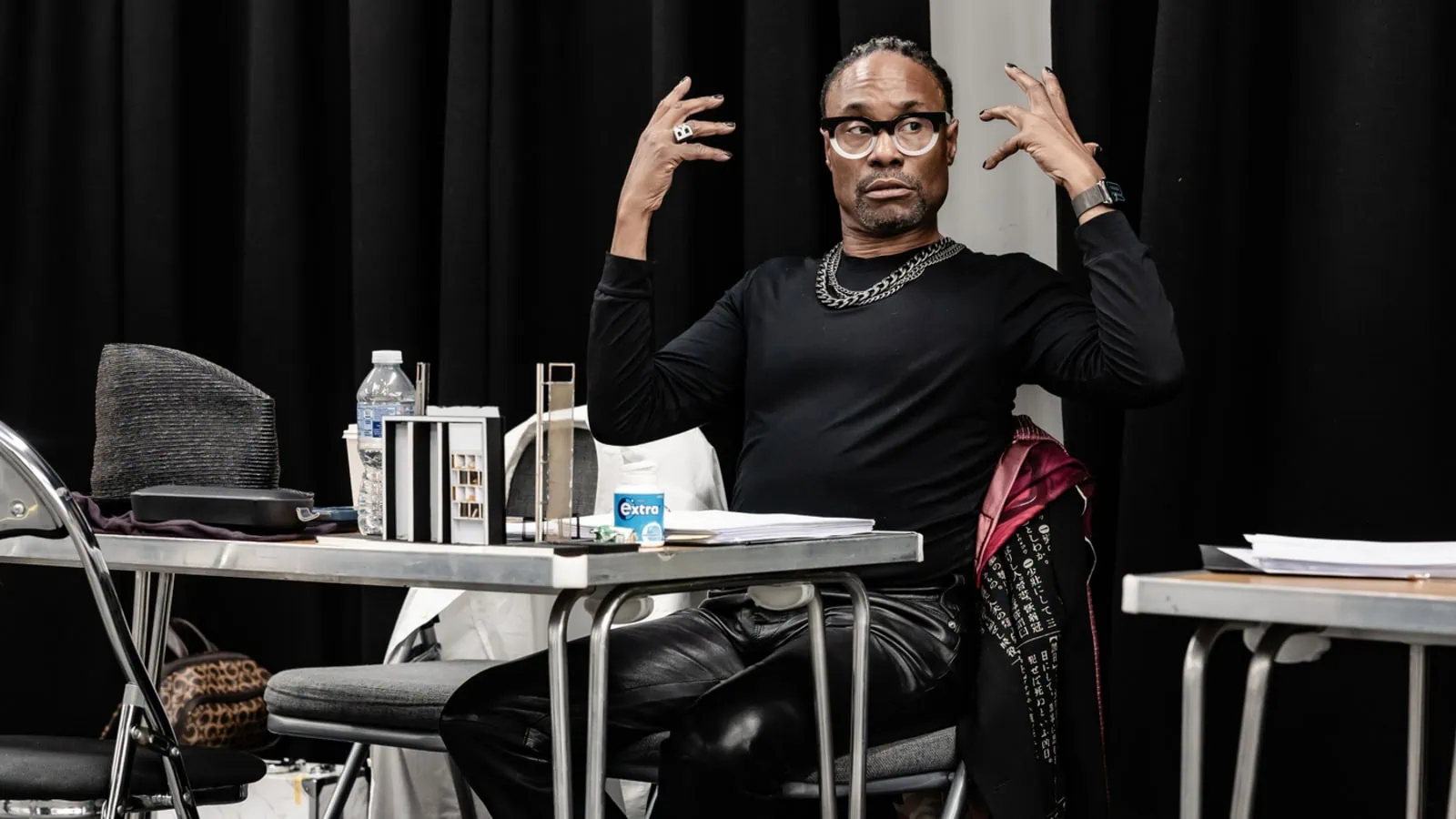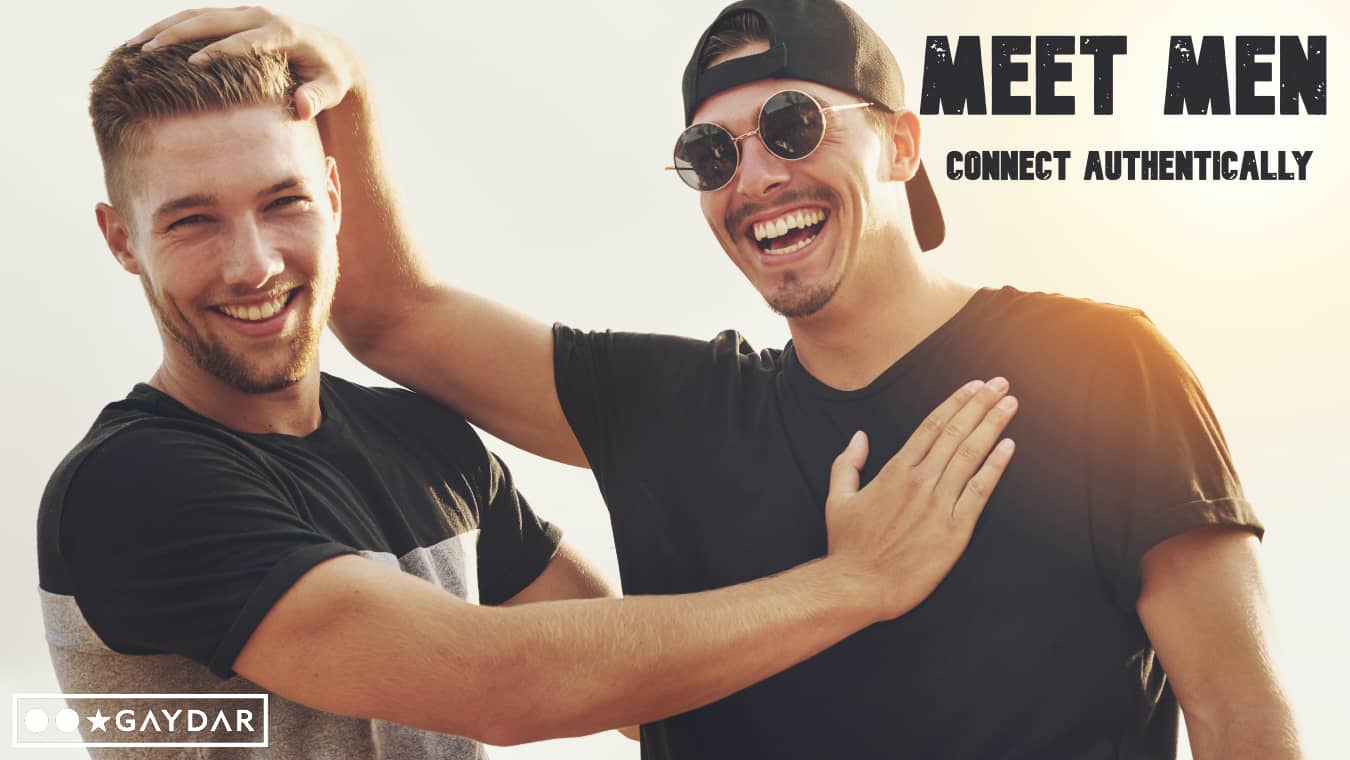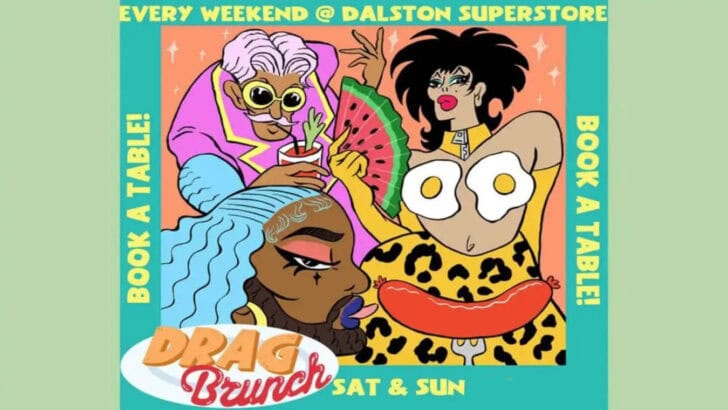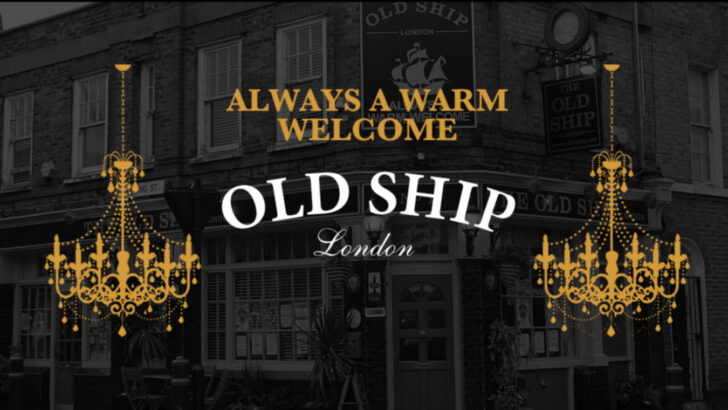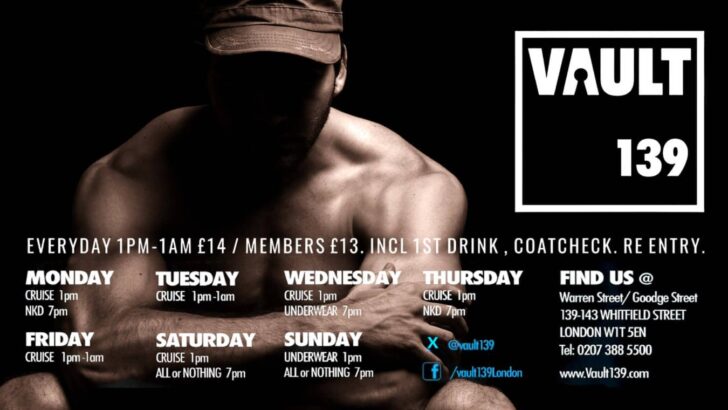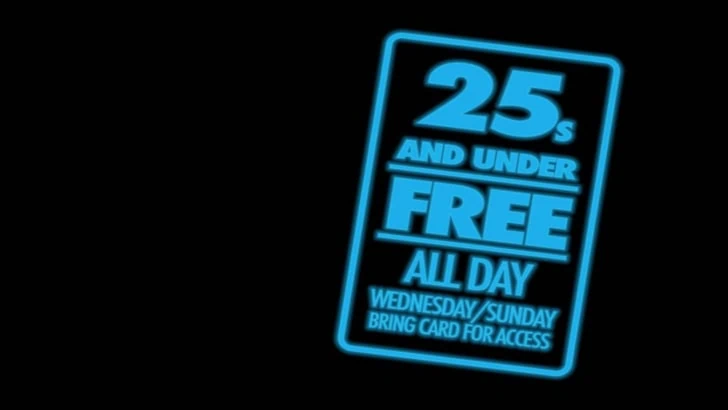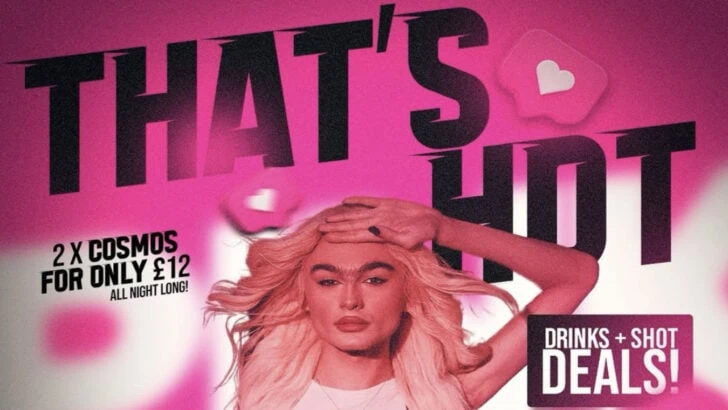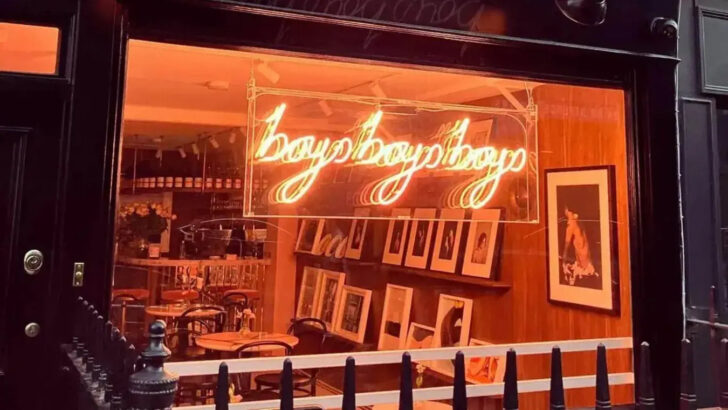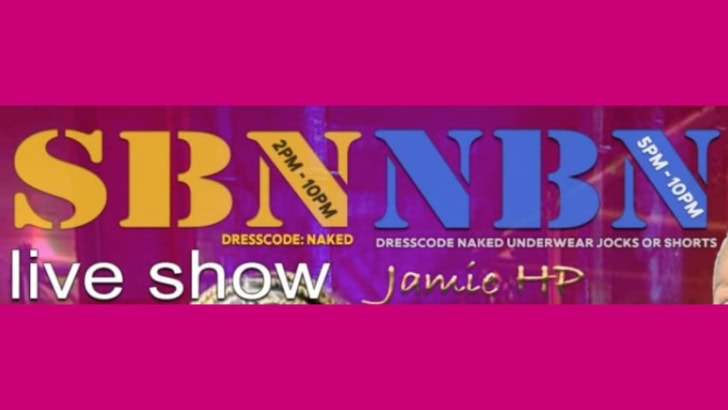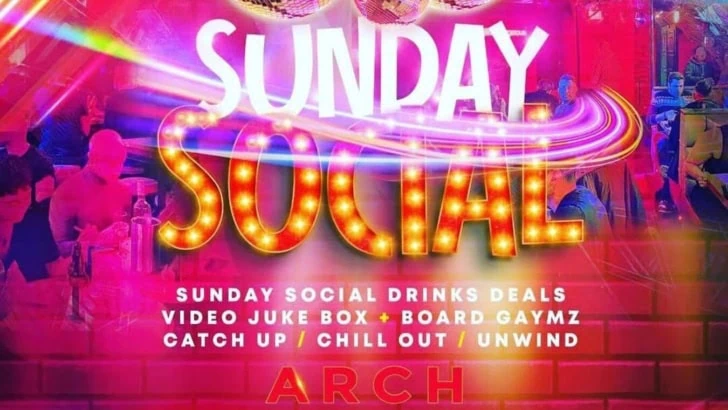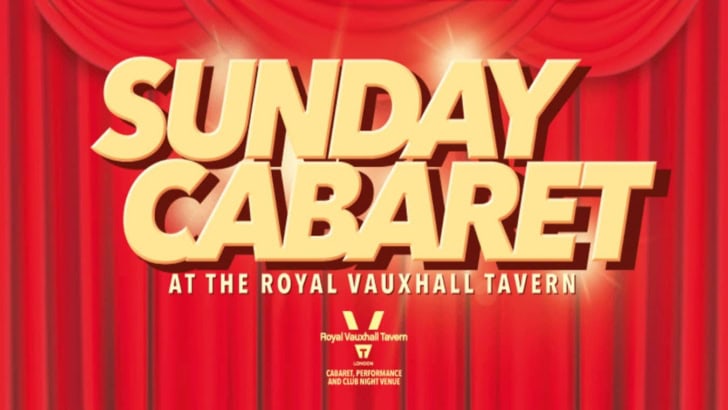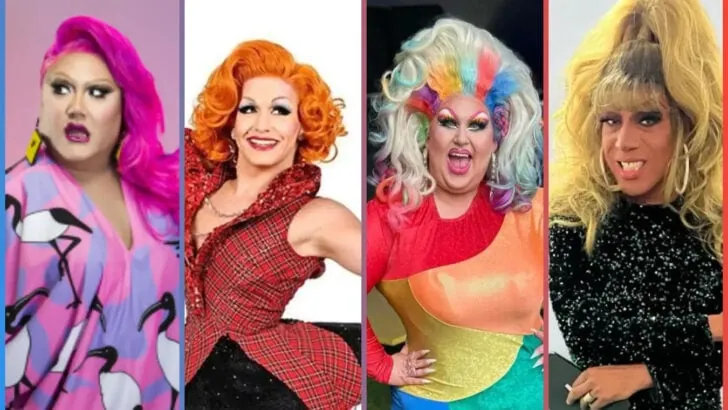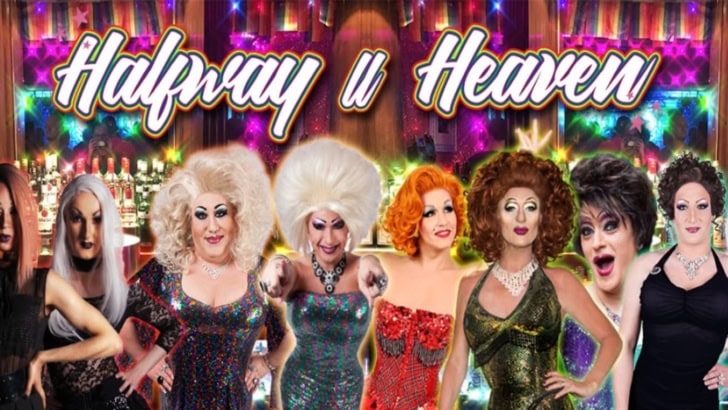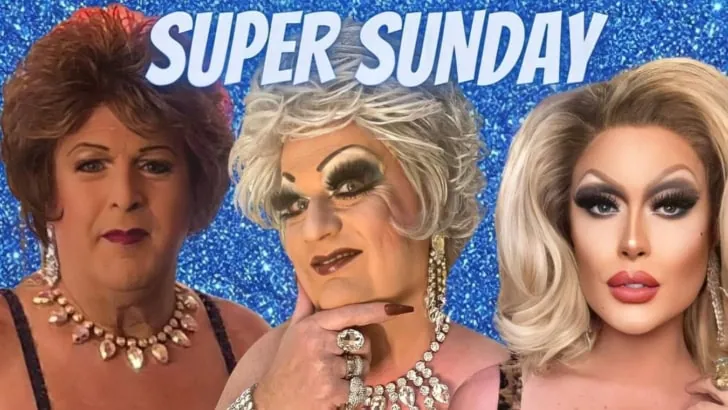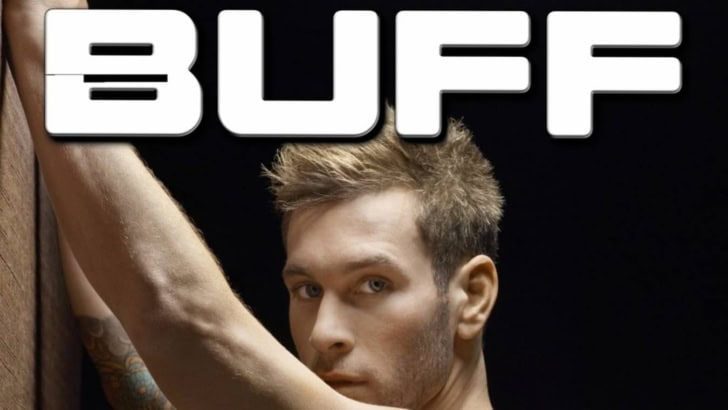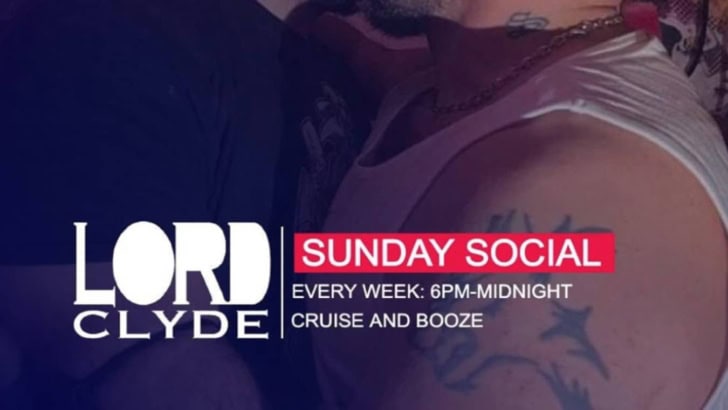Waiting to interview a major international celebrity you’ve admired for so long is a daunting experience. When that person is a queer icon, it also feels very personal. You don’t want to let the side down, so you do your research and prepare your questions.
I joined the Zoom meeting one minute to two, and one minute later, Billy Porter is sitting in front of me. He is seated at a table in what looks like a corner of a rehearsal studio, presumably for This Bitter Earth which he is currently directing. He is eating his lunch.
Billy apologises for eating while grabbing a few more forkfuls. I thank him for finding the time to be interviewed. I ask if he’s seen the pre-prepared questions I’d sent through, and still eating, he says, “No, I haven’t. I like to be spontaneous”.
I talk about how, in the UK, we heard a lot more about Billy Porter through his role in Pose as Pray TelI. I’m playing for time; I hope the pre-amble will give him more time to eat. He’s clearly hungry.
In Pose, Pray Tell was HIV positive and an aspiring fashion designer during the AIDS crisis, and Billy had been diagnosed HIV positive in 2007. I go straight in with my first question, hoping I haven’t gone too heavy on someone trying to enjoy lunch.
“Did playing this award-winning role influence your decision in 2021 to announce that you were HIV positive?”
Billy stops eating. He puts down the fork and dismisses the food. He throws back his head, and after a thoughtful pause (of which there will be many), he answers.
“It was a confluence of events. I was writing my memoir, and I knew that in my memoir, I was going to say it. I was going to… tell everybody. Disclose or whatever you call it.”
But Billy hadn’t told his mother that he was HIV positive. He hadn’t told her for 14 years.
It was during the COVID pandemic when Billy told his publicist, Simon Hall, that he was going to disclose that he was HIV positive in his memoir. ‘Unprotected’ was due for publication in October 2020. The publicist’s immediate reaction was to tell Billy to ‘hold up’ and basically listen. Billy explains the publicist’s viewpoint in his own turn of phrase.
“My sort of rise was not only attributed to my talent – in my fashion and all of that, in my fabulousness and all of that – but it’s also been attributed to me speaking the truth. I speak the truth; I’m authentic, you know.”
Simon Hall made it clear that if Billy died on Pose HIV positive and Billy ‘told the truth’ and announced that he was HIV positive at the same time, then the cynical press would sensationalise the story – so he had to do it ‘right now’. A plan was devised, and Billy recounts the timeline.
“Literally the next day, he and Ryan Murphy (Pose producer) devised the ‘how?’ which ended up being that cover in the Hollywood Reporter. That was like a Monday, I think. By Tuesday afternoon, the whole Hollywood Reporter thing was set up and planned. By that Friday, I told my mother.”
Since his ‘disclosure’, as he calls it, Billy has been an important advocate for ending HIV and HIV stigma and has worked with many organisations, including as an ambassador for The Elizabeth Taylor AIDS Foundation.
“We show up, and we fight like we always have”
Fast forward to today, I asked him what he thinks the impact of Trump’s cuts on funding in the global battle against HIV and AIDS will be. And most importantly, what does he think we can do about it. His response is clear.
“It is absolutely intentional by their actions to destroy the progress, and that’s not just on HIV; that’s everywhere. To simply destroy all the progress that America has made – it’s beyond HIV – it’s everything! So, yeah, it’s very destructive.”
There’s another pause, a moment in time for us both to reflect on the significance of what he has just said.
I ask again, “What can we do about it?”
“We show up, and we fight like we always have. This is not new. Not new. None of this is new. No!”
Billy has been on the frontline since he was a teenager, and he is clear about the responsibilities of those who are on the frontline now.
“So there are now a few generations that were born after the progress was made, and they don’t know what it was like if you’re born in a world where you had to use a separate bathroom and a separate water fountain. They weren’t here for AIDS. They weren’t here for the meds. They weren’t here for all of the funding and all. They weren’t here for that. So they don’t know. So now it’s time for those people to get out and go and do the fight. And we can do it together”
Billy is also a fashion icon, you could even call him a fashion activist, as his look constantly challenges social norms. I ask him where that came from.
“From the earliest time that I could remember. You know, I grew up in the Black church, and the Black church is a fashion show. And my family was very fashionable.”
He recounts how his grandmother was a seamstress at a time when women bought patterns from fashion brands like Vogue and Chanel.
“My grandmother would make clothes, and they were very chic. We were chic – on a budget. And my favourite time of year was Christmas and Easter because I always got a new suit for church. I’ve just always loved fashion. I’ve always loved looking good. Being first generation, post-civil rights movement, you know, it was always about dress for the job you want, not the one you have. It was always about looking good, so I’ve always loved to look good.”
“You know, everybody told me that my queerness would be my liability”
But it wasn’t until after he played Lola in Kinky Boots (2013) that he developed ‘the non-binary thing’, as he calls it. He describes it as something that developed organically.
“You know, everybody told me that my queerness would be my liability. And it was for decades.”
He tells me he tried “running away from the feminine” because “the straighter you can appear, the more work you will get.” While he acknowledges things have gotten better, there is still a long way to go. So, it was not until his early to mid-thirties that he began to realise that the only thing he was interested in being was ‘myself.’
“For my peace, my personal peace… I can’t be anybody else. I was tired of trying to be straight enough for people so that they would give me a job. I was just tired. I was over it. So I chose me. I chose my authentic self, and I started showing up like that, and that is when things turned around and after many, many, many years… It wasn’t quick (he laughs)… after about two decades, Kinky Boots showed up.”
For Billy, the role of Lola as a drag queen was really significant; from there, he says it was “just a natural progression.”
After Kinky Boots, Billy was searching for a different personality fashion-wise for the Soul of Richard Rogers album tour (2017). He describes the music as “soulful, R&B soul, hip hop, rap… gospel versions of these classic songs”, and he wanted the tour to be a bridge that his more traditional theatre audience could cross over to what he calls his ‘roots music’. He wanted something that would look like that.
Billy went shopping for a look for a couple of months and eventually came across the designer Rick Owens.
“And you know Rick is very rock and roll, very avant-garde, very non-binary, and I landed there, and I walked into a flagship store, and the lady was like, ‘Well, this is all unisex’.”
This was an eye-opening moment for Billy. He exudes excitement like a kid in their first candy store.
“There were dresses there, and there were tunics, and there were pants, and there were boulettes. I was like, oh my God, oh, oh, oh, like it never even occurred to me that it was an option for me to express myself that way as Billy until then. So then I bought up a bunch of clothes, and that became my look for that tour.”
Pose came along the following year, and as a consequence he had his first mainstream red carpet event at the Oscars.
“I knew that on the red carpet, my first sort of mainstream film and television red carpet, I wanted to play with the non-binary of it all, and that’s how it sort of just grew from there.”
I’m interviewing Billy in London and he has just finished playing Emcee in Cabaret. So, we move on to that and I ask him what excited him about the role.
“It’s a role that I’ve wanted to do since the 90s, since the Sam Mendes revival, and I couldn’t even get an audition for it. I was told that that’s not the story we’re telling. And we’re talking about these things now. I couldn’t say anything about this earlier. This isn’t about being mad, this isn’t about trying to read anybody, it’s just the truth.”
Billy had sent everybody a copy of Hans Massaquoi’s memoir, Destined to Witness, Growing Up Black in Nazi Germany.
“I sent it to the entire creative team back in the late 90s. I didn’t hear anything. It was all good – I moved on. But I just had to make everybody aware, and I signed [the books], ‘We were there‘. We have always been there. You know, this erasure thing is not new either. It’s been happening the whole time. It’s just been underground, and now everybody’s saying the quiet part out loud.”
“My art is my calling”
In his memoir, Billy described his mother as a source of unwavering love and acceptance, particularly when he came out as gay, and he recounts her advice to him.
“You know my mom, my late mom, recently late mom used to always say – she was a very spiritual, religious woman – and she would say ‘God’s delay is not denial’.”
The saying is a reminder that when waiting for something, it doesn’t mean God isn’t working. It’s about understanding that delays can be part of a larger plan for our growth and well-being.
“You fast forward all these years. My art is my calling. It’s my purpose.”
Billy clarifies his religious and spiritual roots and define’s his work as his ‘ministry’.
“I’m not religious, but I’m spiritual. When you look at something like Cabaret, and you see America’s descent into Nazi madness replicating that on the backs of Black people, me doing this show with all three of the leads being Black for the first time in the 60-year history of this piece is mind-blowing! It’s exactly where I’m supposed to be. Activism, my resistance, is my art. That’s what’s exciting to me… I get to go to work every day and, in my own way, activate and resist!”
Billy’s artistic output as an actor, a singer, a writer, and a fashion icon is there for the world to see and his activism is the thread that binds it all together.
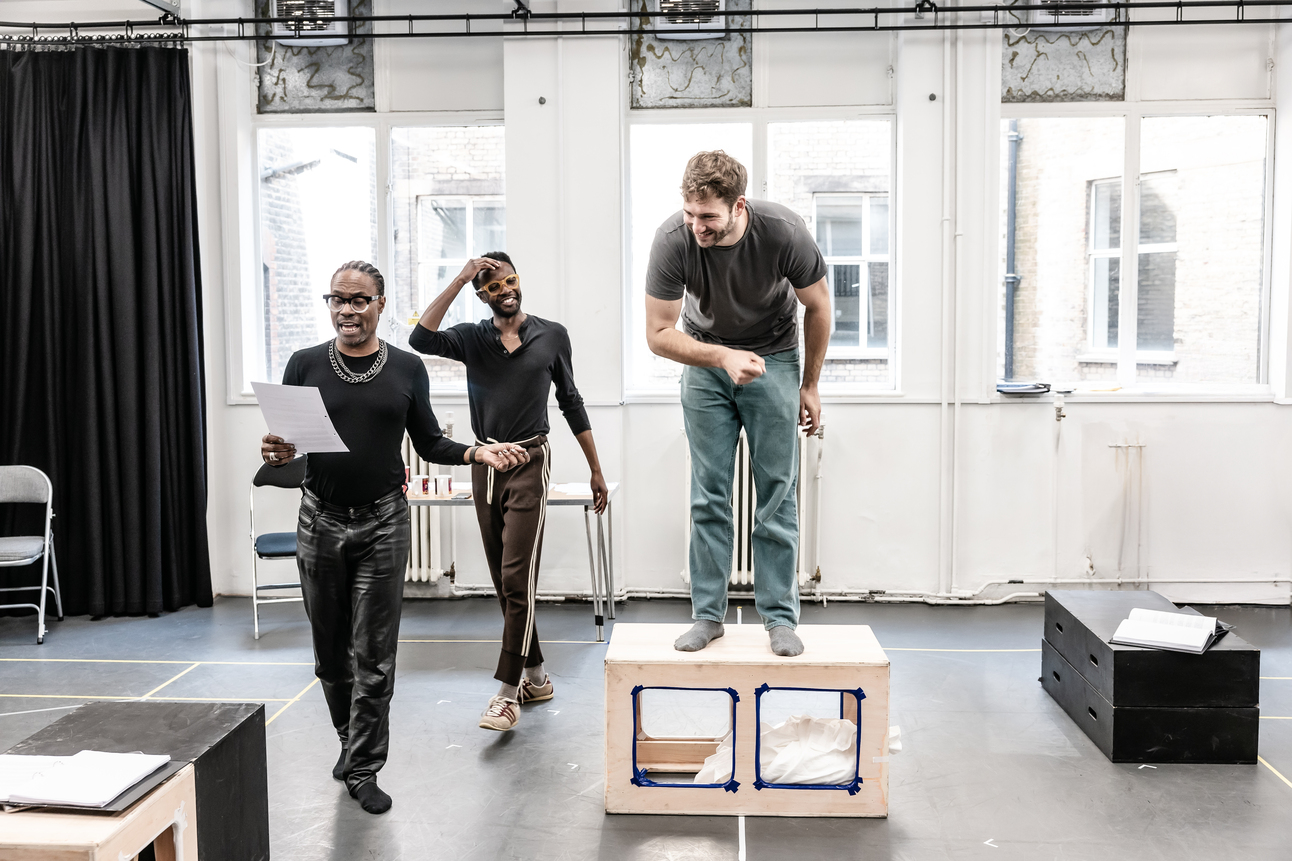
I’m talking to him in the corner of the rehearsal studio at Soho Theatre, where he is working in his debut role as a theatre director, directing This Bitter Earth. The storyline centres on a relationship between a young Black writer, Jesse, and his white boyfriend, Neil, a Black Lives Matter activist.
I ask if This Bitter Earth was written for him to direct because it feels like it has been. Surprisingly, This Bitter Earth wasn’t commissioned for him but rather for a theatre in the States. Though he’s known the playwright Harrison David Rivers since he arrived in New York, it was in London that he was introduced to the script.
“I was at Soho House here last year, and I was approached by a junior producer who said ‘we’re trying to get you to direct this play and we sent it to your people but we haven’t heard back’. I said, ‘just send it to me.’ I red it on the plane and I had the same response that you just had, which is, this is like exactly what I was going through in the moment with my white, now ex-husband. It’s exactly what I was going through. And I just knew that I had to do it.”
I want to know how he hopes the play will ‘activate’ the audience. His answer has a spiritual undertone.
“My hope is that it gives people the courage to… break away from what’s comfortable for them. Step out of our bubbles and connect with humanity, connect with the people and the energies that maybe we don’t understand, maybe we agree with, maybe that we fear. Have the courage to step out on faith and have the conversation because that’s what’s not happening, and that’s what has not been happening for quite some time, and that’s why we are where we are!”
I agree. We need to step out of our bubbles and have these conversations, and while I’m loving my conversation with Billy Porter, we’re already in overtime. So, I ask if he has had any time to enjoy London.
In general he does enjoy London but on this trip he simply has had no time. On Cabaret he was doing eight shows a week. He just went from home to theatre and back home again.
“And I was going to the Nazis every night. And that takes it out of you.”
There’s been no let-up since as he’s gone straight from acting in Cabaret to directing This Bitter Earth at Soho Theatre.
“Right now, I’m putting up a play, and they’ve given me like two and a half minutes to do it.” He laughs at the thought.
I push my luck with the time we have left and ask if he’ll stay on after his stint at directing.
“I’m going back to the States to work and will be there indefinitely working for a while. I would love to be able to make London a second home for me. Marisha, my co-star (Cabaret), Marisha Wallace, she’s been over here for nine years. She’s become a British citizen. I’d love to maybe think about dual citizenship because I need to protect my sanity, and my peace, and my nervous system. That means I will need to take breaks from physically being in America. I will always be there; I will always fight. And now I’m 55 years old. Now it’s about self-care. I’ve been on the frontlines since I was a teenager. The frontline for me now is the work.”
Billy’s PA in the States has been patiently sitting on the sideline. A pop-up message tells me that Billy needs to be somewhere else now, and this has to be the last question.
So, what does he have to say to the next generation on the frontline, especially LGBTIQ+ in the States?
“There’s no time for fear. There’s no time and no space for terror. It’s rage. And turn your rage into action. Whatever that means for you. Turn your rage into action. Keep fighting.”
This Bitter Earth runs from 18 June – 26 July 2025 at Soho Theatre, 21 Dean Street, London W1D 3NE, United Kingdom.
